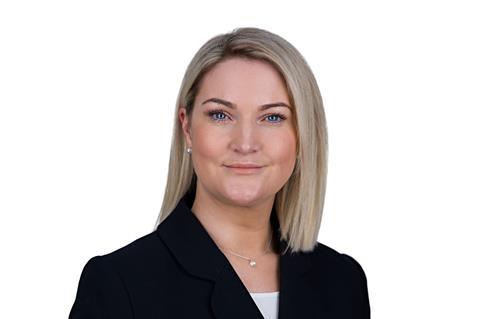Senior associate in the commercial litigation team, Manchester
I grew up in Twinbrook, West Belfast, during the Troubles. It was a strongly Catholic, nationalist area blighted by high unemployment, deprivation and suicide. One of my earliest memories, aged eight, is of being forced to leave a cinema due to a bomb having been planted nearby.

Watching the film In the Name of the Father inspired me to become a lawyer. It is based on the Guildford Four and Gerry Conlon’s 15-year struggle to clear his father’s name and prove his own innocence. Emma Thompson played the lawyer. There is a part where she presents evidence in the courtroom that shows the British government knew that Gerry Conlon was innocent all along. That scene inspired me to want to become a lawyer to use my skills and voice to help those more vulnerable than me.
Despite having very few role models in terms of professional people, I left school with 10 GCSEs and two As and a C in my A-levels. This meant I was able to study law at Queen’s University in Belfast.
It was here that I met Phil Scraton, who was my lecturer in the second year. A critical criminologist, academic and author, Phil is best known for his investigative work into the 1989 Hillsborough football disaster. He was a proud working-class man from Merseyside and an advocate for social change. I used to run to his lectures so that I could sit at the front to listen. I was in awe of how passionate he was about the subjects he taught. He was so down to earth and approachable.
'Watching the film In the Name of the Father inspired me to become a lawyer'
The importance of role models is crucial when it comes to improving social mobility in the legal profession. Just seeing someone from a similar background to me with similar challenges who had achieved something with his life made me feel that I too could do that. Despite the odds against me, I graduated with a 2:1.
Growing up in the Troubles, I saw first-hand how the law can protect people but also be used to victimise and segregate people. I initially wanted to be a criminal solicitor. I did work experience at the Crown Prosecution Service and volunteered as an independent custody visitor at Greater Manchester Police stations. I wanted to use my legal knowledge to ensure needs were met, regardless of a person’s background or funding options. Things do not always turn out the way you imagine. With the huge cuts to public funding, I qualified into litigation instead.
The route to becoming a solicitor in Northern Ireland meant attending the Institute of Professional Legal Studies. It provides an internationally recognised and unique one-year postgraduate course for trainee barristers and trainee solicitors who study together. You need to find a firm to take you on while you study. I had absolutely no connections and no network so I moved to Chester to undertake the LPC instead. Chester was a popular choice for those moving to England as it was easy to travel home.
I was once told by a previous employer that I was ‘lucky to be employed as a woman of childbearing age’. I wished I had left that job there and then but because of financial reasons I could not. That experience has driven me to advocate for working parents and is why I feel so passionately about the Clarke Willmott family care mentoring scheme. Sometimes, it is just really helpful to chat to a like-minded individual, who has first-hand experience, about any issues or concerns you may have.
Clarke Willmott is piloting a reverse mentoring scheme. My role involves mentoring Stephen Rosser who stood down as CEO in April 2023 having overseen 13 years that transformed the firm. We have had open and candid discussions regarding our different backgrounds and journeys into law and spoken about unconscious bias and our personal experiences of microaggressions. I have learned so much.































No comments yet